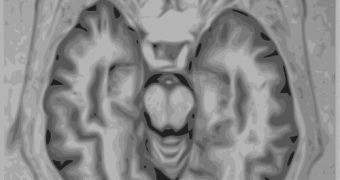Researchers announce the creation of a new approach to training one's brain, which could in the future be used as a method of helping drug addicts and alcoholics control their cravings, but also for more general applications as well.
The technique relies on producing, analyzing and interpreting brain scans that are generated in real-time. The team behind the work says the study brings people a step closer to keep track of their own cerebral activity.
Feedback techniques and brain-scanning technologies are used together in this combined approach, the group announced in a presentation made last week in San Diego, at the meeting of the American Society for Neuroscience.
Using this approach, they said, they were able to train test volunteers into being able to move a computer cursor using only their thoughts. As little as five minutes of training were enough to succeed.
It's easy to see how this could be useful when dealing with addicts. If these individuals can learn how to do this, then they may become capable of controlling their own mental states, and their cravings implicitly.
“I think it's very exciting, and I think it's likely to be just the tip of a large iceberg of possibilities. It's a small case demonstration that you can do this and you can do it in real time,” explains expert Christopher deCharms,
The neuroscientist is the founder of the company Omneuron, which is dedicated to developing technologies that allow for the real-time use of functional magnetic resonance imaging (fMRI) in visualizing what the brain is doing.
In past investigations, it has been demonstrated that people are capable of getting in control of their own cerebral activity, provided that they are showed how their brain looks like in real-time.
Some studies indicate that it is possible to increase a person's tolerance to chronic pain and even depression with sufficient training of this sort. FRMI is a critical component in this approach.
The new system of whole-brain imaging was developed by University of Pennsylvania psychologists Anna Rose Childress and Jeremy Magland, together with a team of colleagues, Technology Review reports.
They then paired it up with a mathematical algorithm that makes it a lot easier for them to determine which of the brain regions highlighted in past studies are indeed the most actively involved in thought processes.

 14 DAY TRIAL //
14 DAY TRIAL //